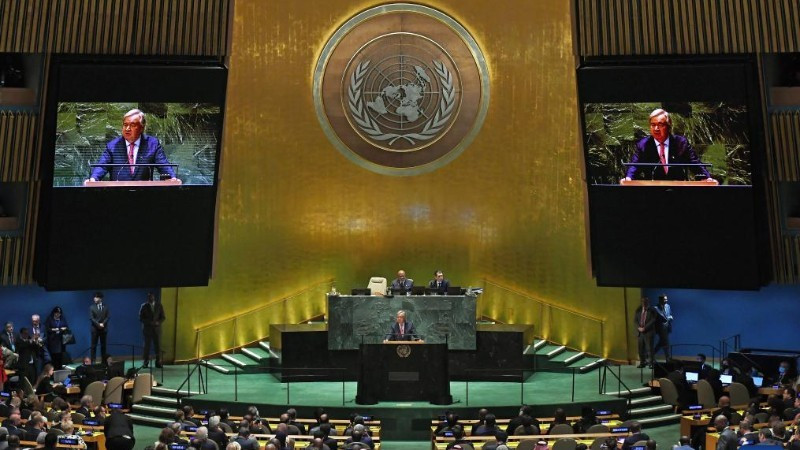Eighty years ago, the UN Charter – the founding document of the UN, setting out the core principles for member states, was adopted on June 26, 1945 in San Francisco (the US), paving the way for the official establishment of the UN on October 24, 1945.
As the central role for harmonising international efforts toward peace and security, the UN reflected the common desire for peace and cooperation, especially after the pain and loss caused by the Second World War.
Looking back on its long journey of 80 years, the UN has achieved many great achievements, making important contributions to the progress of humanity, but is now also facing a series of challenges.
UN Secretary-General Antonio Guterres has described the UN Charter as “not just words on paper, but a promise of peace, dignity and cooperation among nations.” In a world currently witnessing a surge in armed conflicts and severe humanitarian crises, the UN’s role is more vital than ever.
According to Guterres, the UN remains a place where even adversaries can sit at the same table to air grievances, and where smaller nations have a voice. The organisation continues to carry out crucial missions such as delivering food aid and deploying peacekeeping forces to conflict hotspots.
One of the biggest challenges of the UN is the increasingly tight financial resources for its operations, mainly due to the failure of some countries to fulfill their obligations on time, in the context of a gloomy global economic growth outlook. As of May 2025, the UN had received only 1.8 billion USD of its 3.5 billion USD annual budget.
In response to this budgetary crisis, Secretary-General Guterres launched the UN80 initiative, aiming to restructure operations and streamline the organisation’s machinery. A notable proposal involves reducing staff by 20% within UN bodies dealing with political and peacekeeping affairs, by eliminating overlapping positions.
UN Controller Chandramouli Ramanathan revealed that Guterres has set a target to cut the UN’s regular budget by between 15% and 20% in 2026, including a 20% reduction in the current Secretariat workforce.
Another challenge is the controversy surrounding the UN's influence. According to AFP, Richard Gowan, an analyst at the International Crisis Group, since the Cold War, the UN has responded to major crises such as the genocide in Rwanda and the war in Iraq. However, many countries are now expressing frustration that the UN Security Council has not been able to act in major conflicts such as those in Ukraine and Gaza.
Gowan pointed out that the main cause of this deadlock lies in the veto power of the permanent members of the UN Security Council. The fact that UN member states find it difficult to reach a consensus on important issues certainly affects the overall effectiveness of the organisation.
Compared to the time the UN was founded 80 years ago, the current world situation has changed a lot. Geopolitical tensions and global challenges such as climate change and food security are becoming increasingly fierce and complex. Extensive reform of the UN to operate more effectively is an objective and urgent requirement, stemming from the reality of the international situation, towards a better future for all.
















